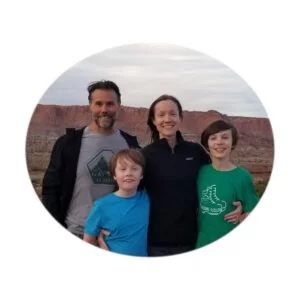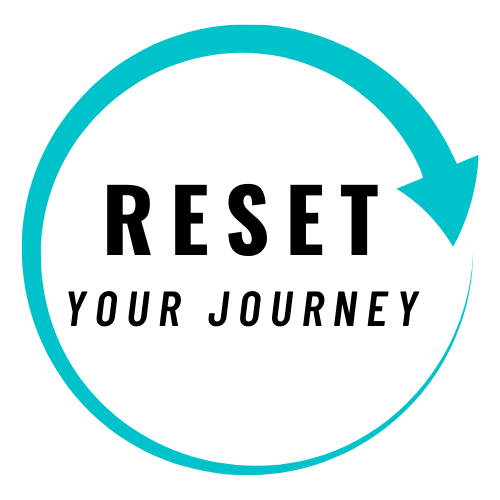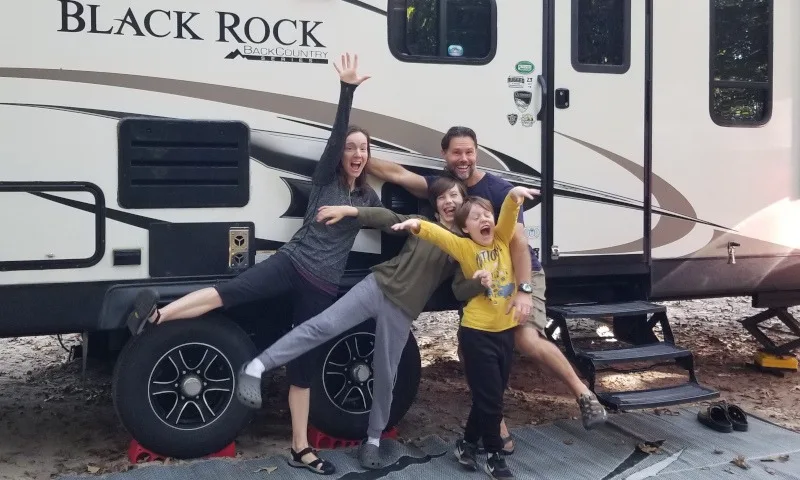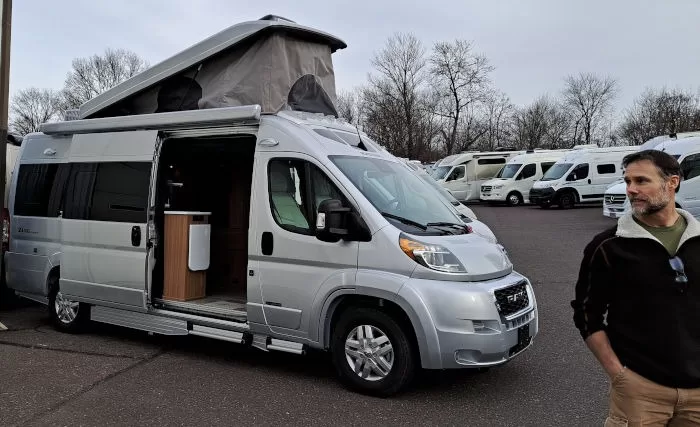Last Updated on 03/02/2024 by Glynn Willard
Should You Sell it All And Pursue Full-Time RV Living?
Want to get to the point? Scroll down for steps and consideration to live full-time in an RV.
Whether it’s trendy or not, embracing an RV full-time lifestyle is a big step.
Is full-time RV living right for you?
I may not be able to answer that question for you. But after two years of being full-time RVers, I can certainly present you with many of the questions that inspired us to change.
I can only imagine how many people have gotten to the point of frustration and just want to hit the open road.
No doubt, there are many reasons someone wants to “start over.”
For many, it might just be an income amount or a source of income. Or your life was shattered by an external event such as COVID.
That was our catalyst to move the family into a small space with wheels.
I suppose that’s old news by now!
You’ll also likely recognize signs you’re bored with your life if there are no external forces involved.
In other words, you’re on autopilot. This may be more relevant currently.
But again, getting rid of everything and starting over seems to be a common theme lately.
The “pandemic” may have driven our decision, but our desire was there before our life turned on a dime.
So, ultimately for us, it was never the source or amount of income. In fact, we loved our business.

This was too big!
So what was it?
Simply put, our stuff! We accumulated too much stuff. And I’m also talking about the enclosure to store our stuff… our home.
There was too much stuff and the house was way too big. And we felt like slaves to these things.
Does this sound familiar?
Originally, we just wanted to downsize and minimize, so we could capitalize on more experiences.
But then life was flipped upside down!
Considerations And Steps To Full-Time RV Living
We’ll discuss the “WHY” later in the article.
For now, let’s get into the steps that will guide you toward full-time RVing.
- The Planning Phase For Full Time RV Life
- Your Vision Of The RV Lifestyle And Travel Style
- Staying a month at a time in an RV park that’s pre-planned for many months in advance. This is more common for the digital nomad.
- Going from private RV parks to state parks based on what’s available and the season.
- Boondocking on a Long Term Visitor Area (LTVA) on Bureau of Land Management land.
- Permanently bouncing from Boondocker’s Welcome to Harvest Hosts.
- Or like us, bouncing around to new places, boondocking on BLM land in remote areas, moving whenever we feel like it.
- Maybe you don’t RV year-round, but instead only go out six months at a time then return to a home-base.
- Finding The Best RV For You
- Sell Your House, Rent Your House, Pay For A Storage Unit???
- How Much Money Will You Need For Full Time RV Living?
- How Do You Make Money Living On The Road?
- Where Do You List As Your Domicile?
- What’s A Good Time Frame for Transitioning?
- Your Full-Time RV Life Launch Day
- Life On The Open Road In An RV
- The limited space in small RVs can get old.
- The learning curve for new RVers is steep in the beginning. OK, a challenge is not a bad thing.
- The more popular destinations have a lot of people. This translates into less campgrounds and boondocking locations.
- Sticker shock at some of the campsite fees. They add up fast!
- Difficulty finding fresh water and dump stations.
- There are a lot of times one gets lonely even with your own family. Finding a community on the road is essential.
- An endless array of outdoor activities!
- A lot of quality time with your family.
- Memories that cannot be replaced by things.
- Taking your house to the grocery store never gets old!
- You’ll meet some amazing people and make new friends all over the country.
- You can wake up to a different “million dollar” view every few days.
- The challenges you overcome personally and as a family will make you and your family very strong.
- I Feel Like My Stuff Owns Me!
- Are You Happy?
- Have You Figured Out What You Really Want Out of Life?
- Will Change Happen Overnight?
- What are Less Extreme Options?
- Sell everything and move to a smaller house.
- Driving a less expensive car that you own instead of finance.
- A different job that you enjoy.
- Elimination of crabs (negative people) in your life.
- Sell Everything and Travel?
- Why Do You Want to Sell Everything?
- What Helped Us Along Our Full-Time RV Journey?
- Planning with deadlines.
- Clarifying the vision for RV living for every individual involved.
- Deciding on the most appropriate RV for your family that aligns with everyone’s vision.
- Sell or rent your house (if applicable).
- Establish a financial blueprint for living on the road.
- Determine how you will make a living or generate revenue as a nomad.
- Where to list your domicile for mail, tax, DOT, and insurance purposes.
- Establish a realistic timeline leading to your launch day.
You could easily spend anywhere from 3 months to several years on this phase.
Take as long as you need because this is the most important aspect of going full-time.
The key is to set realistic and definitive deadlines.
A great way to begin is to sit with family members and figure out each person’s vision and expectations.
Don’t be surprised if each person has a different idea of full-time RVing.
Perhaps you envision National Parks, state parks, and boondocking on public lands while living off solar panels and batteries.
But your significant other leans toward a stationary RV lifestyle.
Meanwhile, your kids are thinking endless “Camp Winnipesaukee.”
The bottom line is to make sure you incorporate everyone’s vision into the decision process.
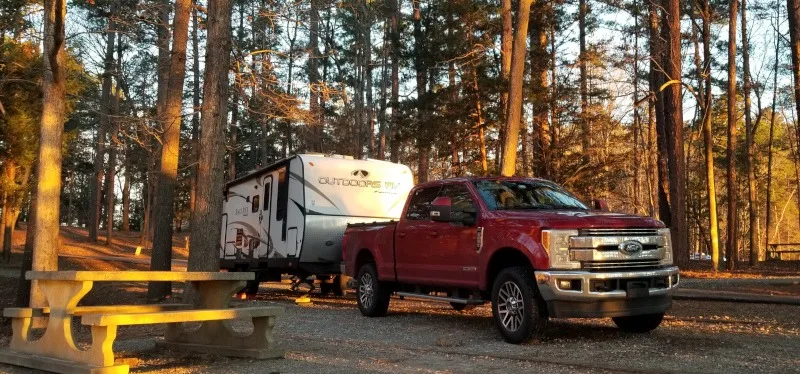
There are a lot of ways to live full-time in an RV.
Some styles of camping that need to be considered include:
With those ideas in mind, figure out what everyone wants.
Not only will clarifying this vision mutually improve everyone’s personal experience, but it will also direct you on the type of RV for which you shop.
Buying the wrong RV for your vision can be costly and disappointing.
There are a lot of different types of RVs on the market and ten times the number of brands.
To state the obvious, they all have different advantages and disadvantages.
So you have to consider the number of people and how each person visualizes the camper.
The smallest (well-built) RV with a floor plan that works for everyone is best.
After awhile on the road, everyone will need a space to call their own.
Keep this in mind when shopping.
Big RV’s limit where you can stay and are challenging on moving days. Not to mention expensive!
Truck campers and class B campervans may be too small for a family of four (for full-time)
If there are several family members, a medium class A, fifth wheel or travel trailer is a good place to start.
If your finances are tight, a well-built travel trailer is the best bang for the buck.
If you all envision nothing but dry camping in remote areas, a 4×4 truck and overland trailer, such as Opus might be good.
A note of caution. If you plan on buying a travel trailer or fifth wheel, learn the tongue weight and buy a truck appropriate for the trailer.
Okay, so you decided on the type of RV. Now do you sell or rent out your house (if you own it)?
Sometimes, we wish we had rented out our house. But that would have come with so many challenges and complications, I was unwilling.
Besides, we didn’t know what our travel plans had in store. I wanted total freedom.
What about your stuff?
Yes, you could put your furniture in a storage unit, but what if you decide to stop traveling and move to the other side of the United States?
The cost of the storage unit and the movers will be more than buying new furniture.
We sold most of our stuff and stored the remainder with family members. Super kind of them!
I suppose that depends on how much storage space you need.
Regardless, the best way is what works for your current financial situation in the current housing market.
Let me put this simply.
You have a lot of control over how much full-time RVing costs.
You can get yourself into RV debt up to your ears or you can be smart and start out debt-free.
A smart and popular option is to buy a used RV. There are enough on the market, you’ll have no problem finding the right RV.
Where you decide to park your rig will have the largest financial impact (unless you’re in debt).
This is why boondocking on BLM and USFS land is so appealing!
The next big financial impact has to do with how often you move. Fuel is expensive!
Everything else will be a similar cost of living to what you spend in a traditional home.
We averaged around $2300 a month for everything for a family of four.
Make sure you have a separate account with close to $10k for emergency repairs.
If you’re not a digital nomad, you can look for seasonal jobs or work camping gigs.
I believe digital nomads have the most advantages for full-time.
Especially since finding a data and cell signal for your computer and cell phone is so easy now.
The likelihood of making money from a blog or YouTube channel is minimal.
And if you do, it will take a long time.
Ask me how I know!
You also have the option of starting a digital business.
Make sure you have all your financial and income-related ducks in a row before setting out on your journey.
Several states such as South Dakota, Florida, and Texas have systems in place for full-time RVers.
Rather than drone on about it, look it up and consider the cost, taxes, and health insurance options for each state.
We use my parent’s address as a domicile and a home-base.
This will likely be a different answer for everyone. There are just too many variables.
From personal experience, I do feel that eight to twenty months is a realistic timeframe.
I’m talking about the time from when you decide to when you execute the change.
Most importantly, don’t rush the process.
Our world is changing daily. This concept of living on the road is no longer new.
This offers a lot of helpful information.
But don’t get caught up with paralysis by analysis!
People have been changing their circumstances to find happiness for centuries, so do what you know is right for you.
Make the decision and then don’t rush. But rather take well-informed steps toward the change.
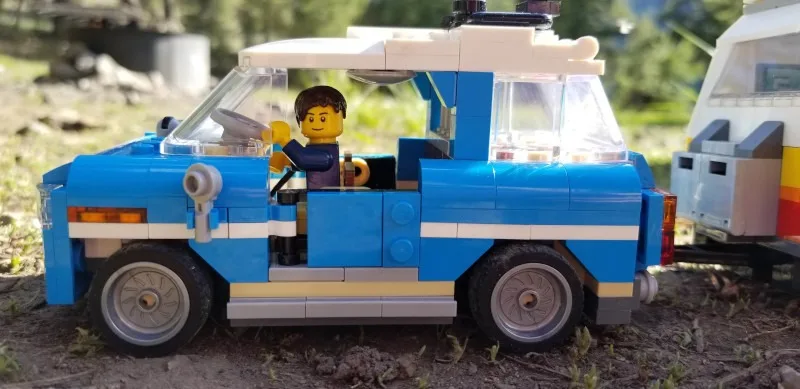
Hopefully, by this point, you’ve done a few shake-down runs with your RV.
This way, you’re familiar with all the systems, how to level it, how to dump it, etc.
One of the most important things to keep in mind about your launch day is to keep your first destination close.
This will be an overwhelming day, so pack the day before and take your time getting ready.
Unrealistic deadlines like 300 miles to your first campground reservation can ratchet up the stress A LOT!
You might even find the family having an awkward silence moment shortly after leaving.
Totally normal!
So first the bad:
Now, more importantly, some of the best things about living in an RV:
Beginners Guide To “WHY” Live In An RV Full-Time

It’s beautiful, but too much work!
I’m hearing this phrase a lot more often. We’ve become a very glutenous society.
There’s too much emphasis on constantly needing the next new thing.
And this seriously makes me sad. Why do we focus on things that only bring temporary joy that eventually end up in a landfill?
It doesn’t help that technology changes so rapidly and something only a few years old becomes obsolete.
Day after day, you work to pay for the things that are depreciating at a very rapid rate.
It’s a vicious and sad cycle. Why do we feel that we need so much to satisfy our lives?
How about putting that money towards experiences instead?
The beautiful thing about living in a small space is there’s no room to accumulate things you don’t need.
Takeaway: We’re putting too much emphasis on the next new thing.

Happiness is not stuff.
So before selling everything and starting over, let’s ponder that question. Are you really happy?
Seriously, stop and ponder that question. What is it that really makes you happy?
I’m willing to bet, your stuff doesn’t truly make you happy (for long).
There are some valid exceptions to that statement. For instance, if a “thing” is part of a loved hobby, it promotes experiences.
Regardless, do you spring out of bed every morning and say “wow, I’m having so much fun, I wouldn’t change a thing!”
I’m sure some individuals have achieved such a status. Although I don’t know any… Perhaps I’m being unrealistic.
But I have to wonder what an endless supply of “stuff” has done to the generation growing up in the last twenty years.
They’ve learned to connect the dopamine spike with new things and constant stimulation.
Have we moved too far away from the sheer pleasure of having less, but doing and socializing more?
Takeaway: Ask yourself if you’re truly happy. If not, do you believe living in an RV will make you happy?
It certainly elevated our “happiness scale!”

I’d be willing to bet the one thing all of us really want out of life is great MEMORIES!
You’ll never lay on your deathbed and think about all the cool stuff you bought.
You probably won’t even remember ninety percent of the stuff you bought!
This is a deep question that requires some real self-reflection.
How self-aware are you?
Until you really know yourself “inside” and “out,” how can you know what you want out of life?
Fulfilling these answers may require a therapist. And exploring those concepts is beyond this article.
But it’s a valid question that fits into the variables that must be considered when deciding to sell everything, live life, and go full-time in an RV.
Takeaway: You won’t care about all the junk you bought as you age, but you will cherish the memories from great experiences living in an RV.
You and I both know that change will not happen overnight. But nothing will change if you don’t initiate the first step.
And that first step is the decision to change. That, my friend, will happen overnight.
For the longest time, we were intrigued with selling everything and living full-time in an RV.
That thought manifested in 2018. But we were comfortable accumulating our stuff.
So, we watched other families on YouTube execute a life with which we were intrigued.
But how do you take two little boys away from a beautiful yard with a gorgeous pool?
They had a great life! But over time, we noticed they began taking it for granted.
All the space, the Lego’s, the big TV, etc. I didn’t want them growing up associating things with happiness.
This was the catalyst for the decision to at least downsize and hit the road.
But how do you let 20 years of work building a business go?
I couldn’t bring myself to just sell it all. Then life flipped upside down… the “pandemic” happened! Now we had our “catalyst.”
When you own a semi-private personal training gym, personal training is not something that weathers the shut-down so well. We survived, but it hurt.
The thought of downsizing was in our minds two years prior. Now we had a good reason to make a change.
What’s your catalyst for transitioning to the full-time RV lifestyle?
Takeaway: The decision to make a change can happen overnight. But you must remain committed to that path to finalize the change.
Before you decide to sell everything and travel, let’s briefly look at some options.
We can look at this from several angles. Again, keep in mind that less stuff and more memories are the focus.
What changes will help inspire this concept?
Regardless of what direction you take, living below your means is important. That alone forces you to accumulate less stuff.
I truly believe that living below your means while full-time RVing is the key to getting the most out of the RV lifestyle.
Takeaway: Living below your means will inspire more memorable experiences and less stuff.

Selling everything and traveling might work for some, but not everyone.
First of all, not everyone wants to travel for a long period. There are plenty of “nesters” out there who just need a small house to call home.
That’s why I spent time figuring out what my family really wants out of life.
Regardless of your decision, there’s a risk. How much risk you’re comfortable with taking to RV full or part-time is a huge factor.
But I pose this question: How much risk is involved in taking the “less risky” path?
The risk of less happiness, fewer memories, fewer experiences, less opportunity to grow as a person, etc. You get the point.
You might think about working from the road for a limited time such as three to six months.
This way you’ll have a better idea as to whether you’re a nester or someone comfortable moving frequently.
If you buy a used RV that’s already depreciated a lot and then sell it within a year, you’ll likely make back most of what you spent.
Sure, there’s risk. But you won’t be bored and you’ll grow as a person.
This can also apply to traveling abroad and working remotely in a foreign country.
Takeaway: If you’re not sure whether you’re a nester or not, a short-term trip could be a good test. You’ll know after a few months if you should live in a small house or on the road.
Do you know that feeling when you go out for a walk and you take nothing with you? It’s a true feeling of freedom.
By eliminating everything that’s not essential for a while, you’re forced to grow as a person.
Takeaway: The less you carry with you, the more flexible you are to enjoy more experiences.

Friends, family, and clients were the biggest help in taking the steps necessary to reset our journey.
Reading blogs and watching videos was certainly inspirational. We gathered a lot of good tips, but we still had to write this new chapter of our lives on our own.
I can’t tell you how many times we just walked together and discussed what direction we needed to take in life.
Those conversations were invaluable in our preparation to becoming full time RVers..
If you’re doing this alone, it’s still worth having these conversations with someone close to you.
Lists with deadlines were another helpful tool in all of the changes.
We like to use Google Keep to make sure plans are executed at the appropriate times.
With so many moving parts, a solid logistical plan in place is the key to making life on the road a reality.

Takeaway: Blogs and vlogs are helpful, but hashing out plans with someone you care about was the most helpful. Then executing steps from a list was key.
Wrapping Up A Beginner’s Guide To A Nomadic Lifestyle
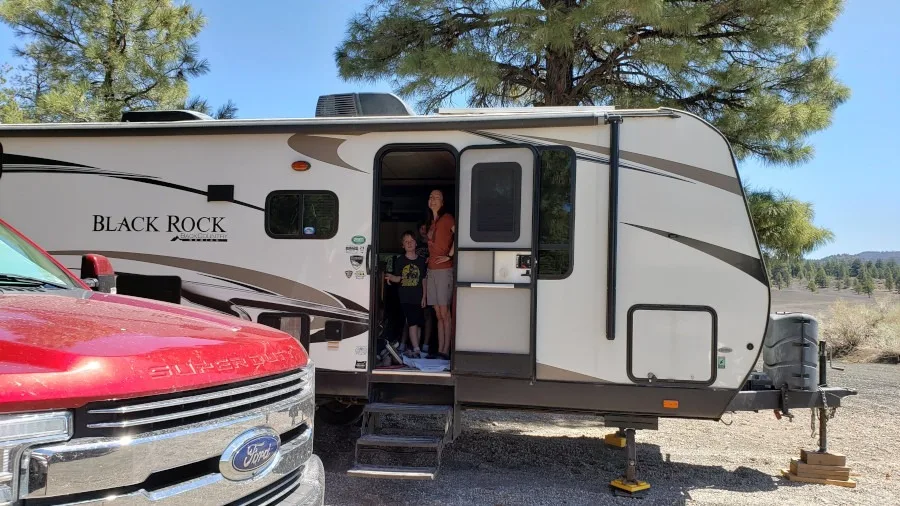
In summary, the process of getting started involves the following the following itinerary:
Ultimately, there are two risks to weigh. The risk of never realizing some potentially remarkable memories and growth.
Or the risk of failing by stepping out of your comfort zone.
From my entrepreneurial perspective, failure is not bad. It’s just how we learn and course correct as we go.
By focusing less on all the stuff we don’t need and more on experiences and social occasions, our memories will be enriched.
As I said before, we won’t lie on our deathbeds smiling about all the junk we possess.
But we will smile about all of the wonderful memories we made.
Are you ready to go full-time?
Meet the author.
We appreciate any help in bringing you great content. Donate or buy us a coffee on our Ko-Fi site. Or subscribe to our YouTube Channel.
Thank you so much for being here!
